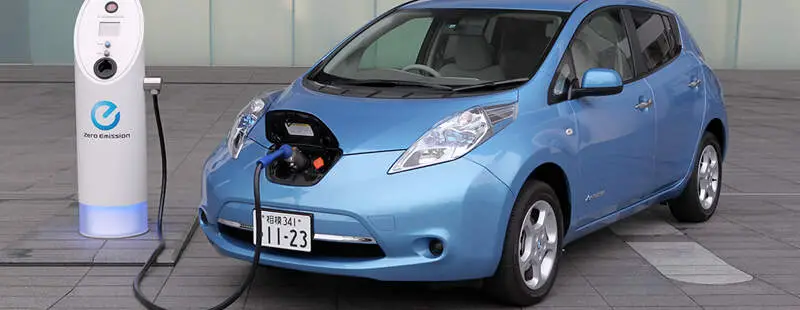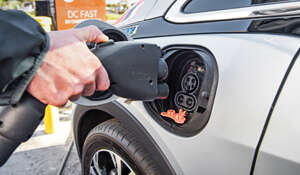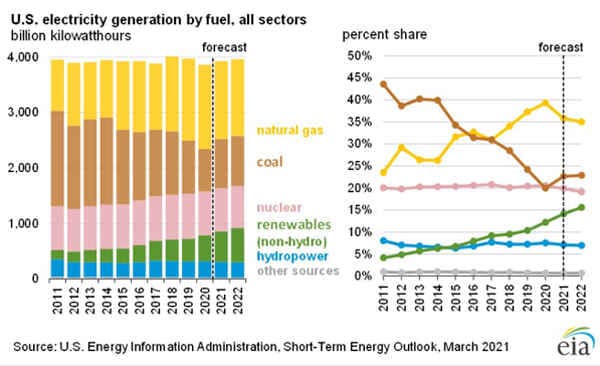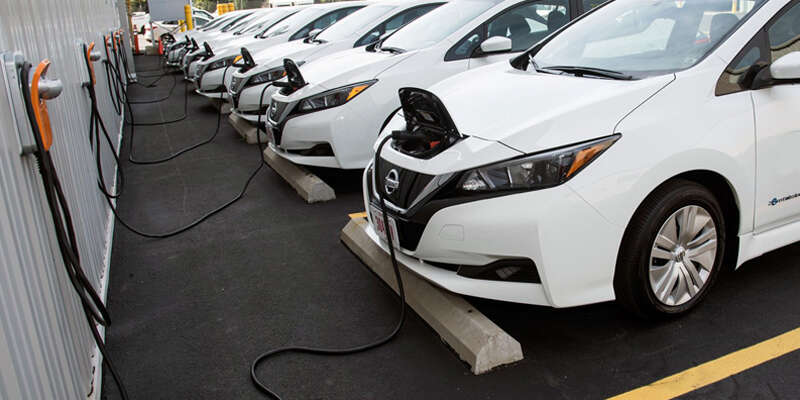How Eco-Friendly Are Electric Cars? – The Truth Revealed!
As an Amazon Associate, Ecotero earns from qualifying purchases.
As the world becomes more eco-conscious, society is turning to electric cars.
But how exactly are electric cars eco-friendly?
Is there even a truth to its “eco-friendliness”, or is it possible that everything is merely greenwashing and marketing gimmicks to sell these newer, more expensive car models?
Here are some electric car facts that might surprise you.
What Makes an Electric Car “Greener” Vs. Fossil-Fueled Cars?
As the name suggests, and as you may already know, electric cars run on electrically powered engines rather than fossil fuels.
It is one of the many benefits of owning an electric car.
But how does this make the car eco-friendly?

Electric car manufacturers and supporters preach that this revolutionary type of vehicle helps in the reduction of CO2 (Carbon Dioxide) emission.
Since electric cars doesn’t use petroleum products for fuel, they don’t produce tailpipe CO2 emissions, making them more eco-friendly than their gaspowered counterparts.
If you think about it, it does make complete sense, right?
Based on the data from EPA (United States Environmental Protection Agency), transportation vehicles like cars generates the largest share of greenhouse gas emissions.
The EIA (US Energy Information Administration) also explained that the transportation sector emits the most CO2 because of its near complete dependence on petroleum fuels.
Ergo, a car that help reduce air pollution are, quote and quote, eco-friendly.
Well, not so fast.
While its true that a car that doesn’t contribute to carbon emissions is indeed greener, there are some caveats on using electric cars.
For starters, one of the reasons why many don’t buy the idea that electric cars are eco-friendly is because the manufacturing process of electric cars still contributes heavily to air pollution.
How are Electric Cars Manufactured?
Manufacturing an electric car is generally the same as conventional automobiles.
Metal ores like aluminium and iron are mined and then transported to a manufacturing plant.
The metals and other raw materials are then processed and assembled into a car.
Finally, the cars are then shipped to depots all over the world and to the end consumers via plane, ship and haulers.
All of these activities require energy, typically from burning coals and fossil fuels, that produce greenhouse gases and CO2 emissions.
To make matters worse, making electric cars requires more energy than regular automobiles.
This is because mining and processing of lithium and other rare Earth elements to create the batteries for the electric car produces more gas emissions. (source)
But the environmental issues of electric cars doesn’t end here.
There’s also the issue of the environmental impacts of electric car batteries and when charging these electric vehicles.
How Eco-friendly are Electric Car Batteries?
While electric cars don’t emit greenhouse gases when used, the issue lies with the fact that electric cars need electricity as fuel.
So, how do you “refill” electricity in an electric car?
Charging and recharging the lithium-ion batteries of electric cars can be done using different electricity sources.
Is Charging an Electric Car Eco-Friendly?
At the moment, there are two ways an electric car can be charged:
1. Less Eco-Friendly Way To Charge An Electric Car (Most Commonly Used)
The most common yet less eco-friendly option is charging the batteries using grid electricity.
Electric cars can be charged using a socket at home, or in electric car charging units.
However, sceptics highly criticize this option.

It’s because if the electricity in your area is generated by burning fossil fuels, then you’re merely removing greenhouse gas emissions from your car’s exhaust and adding it on the electric plant’s chimneys.
A big no-no especially if you’re planning to reduce energy consumption.
2. More Eco-Friendly Way To Charge An Electric Car
On a greener side, electric cars can also operate using electricity created with renewable energy sources like wind turbines, hydroelectric plants, or solar panels.
Charging an electric car using these renewable electric generators makes it a more green product.
But while this option sounds excellent, you might not like the reality by looking at some numbers.
The Reality of Renewable Energy Usage of Electric Cars
In the USA, for the year 2019, about 63% of the electricity was generated from fossil fuels and only about 18% are actually coming from renewable sources. (source)
And a forecast made by the EIA suggest that in 2021, electricity generation from renewable energy sources will rise from 18% to 22%.
This is still not looking good considering in the forecast, 57% of the electricity is still created by burning fossil fuels.

Meanwhile, a data from 2018 shows that a huge majority of electricity all over the world (about 61%) is still generated by coal and gas combined.
So unless you’re driving your electric car in countries like New Zealand or Norway where renewable sources like solar panels generate more than 80% of electricity, it’s very likely that you’ll be charging it using electricity generated from burning fossil fuels.
Can Electric Car Batteries be Recycled?
The short answer is, yes. Here’s how.

Lithium-ion batteries can last for 15–20 years.
When the lithium-ion battery of an electric car is not fit for driving anymore, people can still use it to store energy from wind or solar power.
The battery can then be used as a power supply either in commercial establishments or in people’s homes.
This will help reduce power consumption from the electricity that is generated from burning fossil fuels, which in turn reduces pollution.
And when they reach the end of their lifetime, lithium-ion batteries can also be shredded so that the metal components, like copper and steel, can be reused. (source)
Perhaps the other thing that makes electric cars eco-friendly is that one of its most essential parts, the lithium-ion battery, can be recycled and reused.
Acceptance of Electric Cars in First World Countries
As of 2020, more first world countries are gearing towards phasing out non-electric cars.
The UK has announced a plan to ban sales of gasoline and diesel-powered passenger cars in 2035.
Meanwhile, Sweden (where Greta Thunberg is from) will ban fosil-powered cars in 2030; Scotland in 2032; Norway in 2025, among others.
But the question is, are we ready to transition into electric vehicles?
Greenhouse Gas Emissions of Electric Cars
The Union of Concerned Scientists launched a study to find out the total global warming emissions of both electric cars and fossil-fueled cars at each stage of their lifetime.
From manufacturing the car, when it is being used, and when it gets trashed (or scrapped).
In the study, they found out that the average fossil-fueled car produces 57 metric tons of greenhouse gas emissions from manufacturing to disposal.
Meanwhile, average electric cars only produce 28 metric tons; this includes mining, processing, and transporting raw materials.
However, the data above didn’t take into consideration consumers that are charging their electric cars purely with electricity from coal and fossil fuels.
In this short video, Bjorn Lomborg, Director of the Copenhagen Consensus Center, explains why electric cars aren’t as eco-friendly as many people want them to be.
One of the critical points Bjorn emphasized in the video is this:
Electric cars that run on electricity created by coal produces almost as much CO2 emission to traditional gas cars.
Cost
Electric cars are generally more expensive than average fossil-fueled cars at the moment.
The cheapest electric car anyone can get during publication of this article is the 2020 Mini Cooper SE that has a range or can travel for 110 miles on one charge. It cost $30,750.
This means that the cheapest electric car at the moment cost two to three thousand dollars more than a 2020 Ford Mustang or 2020 Chevrolet Camaro.
Meanwhile, people who want a decent fossil-fuelled car without breaking the bank can look at the 2020 Chevrolet Sonic that cost between $17,500 to $17,700.
Fuel and Maintenance
What good is a car if it doesn’t run, right? And a car needs fuel every day to run.
A study conducted by Michael Sivak and Brandon Schoettle of Michigan’s Transportation Research Institute revealed that the average cost to operate an electric vehicle in the USA is only $485 per year.
In comparison, the average cost for a gasoline-powered vehicle is $1,117.

York City also shared that in 2019, the city spent between $204 and $386 maintaining each of its electric cars while it cost them more than $1,600 for the average gasoline-powered car. (source)
And when it comes to sustainability, electricity can be a renewable energy resource, gasoline and other petroleum products aren’t.
But we would like to hear your thoughts.
Which car do you think is better overall?
Should you even bother getting an electric car?
Electric Cars vs Fossil-Fueled Cars Comparison Table
One of the hottest questions amongst conscious consumers is:
“Which is a better car for general everyday use, an electric car or a traditional fossil-fueled car?”
Based on the sources we cited above, here are some numbers that could help you decide…
| Electric Cars | Fossil-Fueled Cars | |
|---|---|---|
| Greenhouse Gas Emission Test 1 (CO2) | Tesla (90k Mile) 44 Metric Tons | AUDI A7 Quattro 49 Metric Tons |
| Greenhouse Gas Emission Test 2 (CO2) | Nissan Leaf (90k Mile) 31 Metric Tons | Mercedes cdi A160 34 Metric Tons |
| Greenhouse Gas Emission Test 3 (CO2) (Union of Concerned Scientists Case Study) | 28 Metric Tons | 57 Metric Tons |
| Cost (Cheapest Car) | 2020 Mini Cooper SE $30,750 | 2020 Chevrolet Sonic $17,500 to $17,700 |
| Average Running Cost & Maintenance | $485/year | $1,117/year |
Verdict
If you search the term “eco-friendly” on Google, the top result is a direct translation that says it is an adjective that means “not harmful to the environment“.
The same thing is said if you refer to the Merriam-Webster dictionary.
So if we use this definition, then an electric car is not eco-friendly.
Electric cars still contributes to greenhouse gas emissions and air pollution during the mining of its raw materials, manufacturing, shipping, battery recharging, and even when it is scrapped.
Nevertheless, if you compare electric cars to fossil-fueled cars, it is definite that electric cars are more eco-friendly, but given that:
- The electricity used to charge and recharge the car is from a renewable energy source (like solar, wind, and hydro energy).
In short, electric cars are not eco-friendly by definition, but it is generally “more” eco-friendly than fossil fuelled cars.
But what do you think?
Are electric cars eco-friendly or are they simply a more expensive (and dramatized) version of a regular fossil-fueled car in terms of causing damage to the environment?
Do you think the “green” points of an electric car outweighs the fact that it still contributes to air pollution?
Furthermore, what is your opinion about countries banning gasoline/diesel-powered cars soon?
You might also be interested in:

Electric cars are a con, a stop gap to make more money for big business. What about investing heavily in public transport ?
Oh and Meat/Food production is the cause for over 60% of Green House Gasses but of course is big $$$